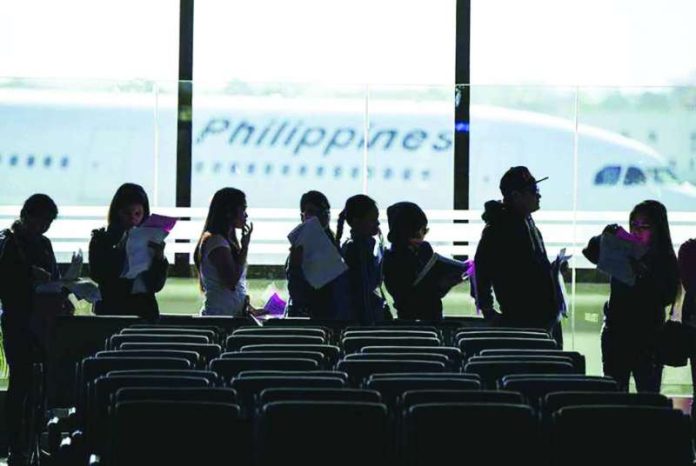Government of the Philippines has shown remarkable flexibility regarding Kuwait’s suspension of new entry visas for Filipino workers. Moreover, the government considers this as an attempt by Kuwait to put pressure on Manila to rescind its decision to ban the recruitment of new domestic workers to Kuwait, “we have not decided to lift the ban for the moment,” said the Philippines Undersecretary of Foreign Affairs, Eduardo de Vega. However, he added that the ban by the Philippines was not permanent and could be lifted in future depending on talks with the Kuwaiti side.
Philippines ban could be lifted in being hired as domestic although it considered that “Kuwait’s strictness represents a step to put pressure on Manila’s decision to lift the ban imposed on the travel of its workers,” the Undersecretary of Foreign Affairs, Eduardo de Vega, said, “We have not decided to lift the ban now, but this doesn’t mean we won’t do that.”
Speaking during a television interview in the Philippines, De Vega explained that any decision to lift the ban imposed on the deployment of Filipino workers in Kuwait would be based on the conditions Manila had set since last February. He also noted that the ban by Kuwait is on issuing new visas and would not affect workers who were already holding Kuwait’s residence visas.
Elaborating on the employment agreement violations cited by the Kuwaiti side, the undersecretary stated: “There were two recurring issues that the Kuwaiti government was concerned about related to the bilateral labor agreement between the two countries. The first issue is with regard to the initiative to establish a shelter for runaway Filipino domestic workers, and efforts to reach out to Kuwaiti employers regarding reports of violations.”
He explained that “Kuwait considered these verbal efforts as violations of labor laws, and that the establishment of a shelter for Filipinos who flee their employers due to violations is not supported under Kuwaiti law.” He clarified that the issue was that “under Philippine Law,, the government and by extension the Philippines Embassy is bound to protect its nationals and set up shelters for them.”
De Vega added, “We do not encourage the workers to run away from their employers, and this is what the Kuwaiti side fears. But when faced with abuse and compelled to leave the employer for their safety, they must have a secure place to seek shelter.”
The second issue that Kuwait considered a violation of the bilateral employment agreement, was that the Philippine government requires the foreign recruitment agency of the worker in Kuwait to contact the employer in case of abuse. But the Kuwaiti law does not provide for this provision.
“While Kuwait refers to these issues as violations, they are not clearly defined in the agreement between our two countries. Whether they are violations or not, it is something that the two governments need to discuss to solve the problem,” said the Philippines undersecretary.
He also noted that the “decision to lift the ban or not is under discussion by the relevant agencies in the Philippines, including the Ministry of Foreign Affairs and the Ministry of Migrant Workers.” Additionally, he stressed that the “ban was imposed because of a heinous crime committed against one of our citizens. The country is still seeking justice in the death of Jollibee Ranara, the domestic worker, who was killed by her employer’s son and her body burned and thrown into the desert.”
De Vega indicated that “meetings will be held with Kuwaiti officials this month, as it is expected that the two countries will resume the terms of the current bilateral agreement. I’m sure there will be a reciprocal appeal. Therefore, we may have to make some revisions to the work agreement, or we may come up with a new working paper on how to move forward.
The Philippine Foreign undersecretary also said that “while the suspension of issuing entry visas to Filipinos to Kuwait includes all workers, its impact is not huge,” considering that “there are not many non-domestic workers who are now working in Kuwait. For those who are already there and have residence permits, they will be able to travel home to the Philippines and return to work in Kuwait. He also said that among the 275,000 and 300,000 Filipinos currently in Kuwait, almost all of them have residence permits, while between five to ten thousand Filipinos may not have valid documents.

















